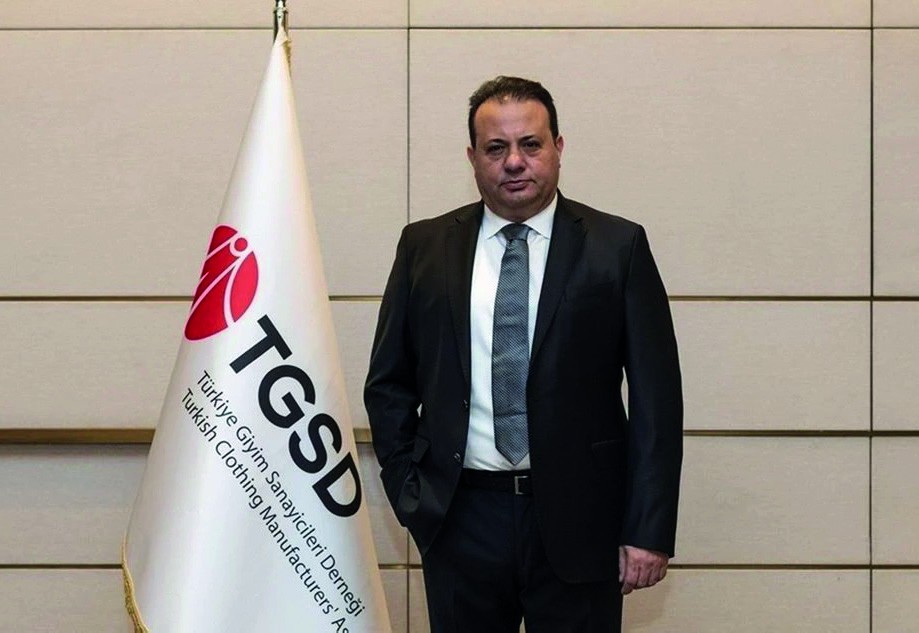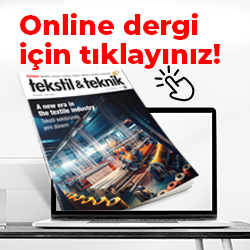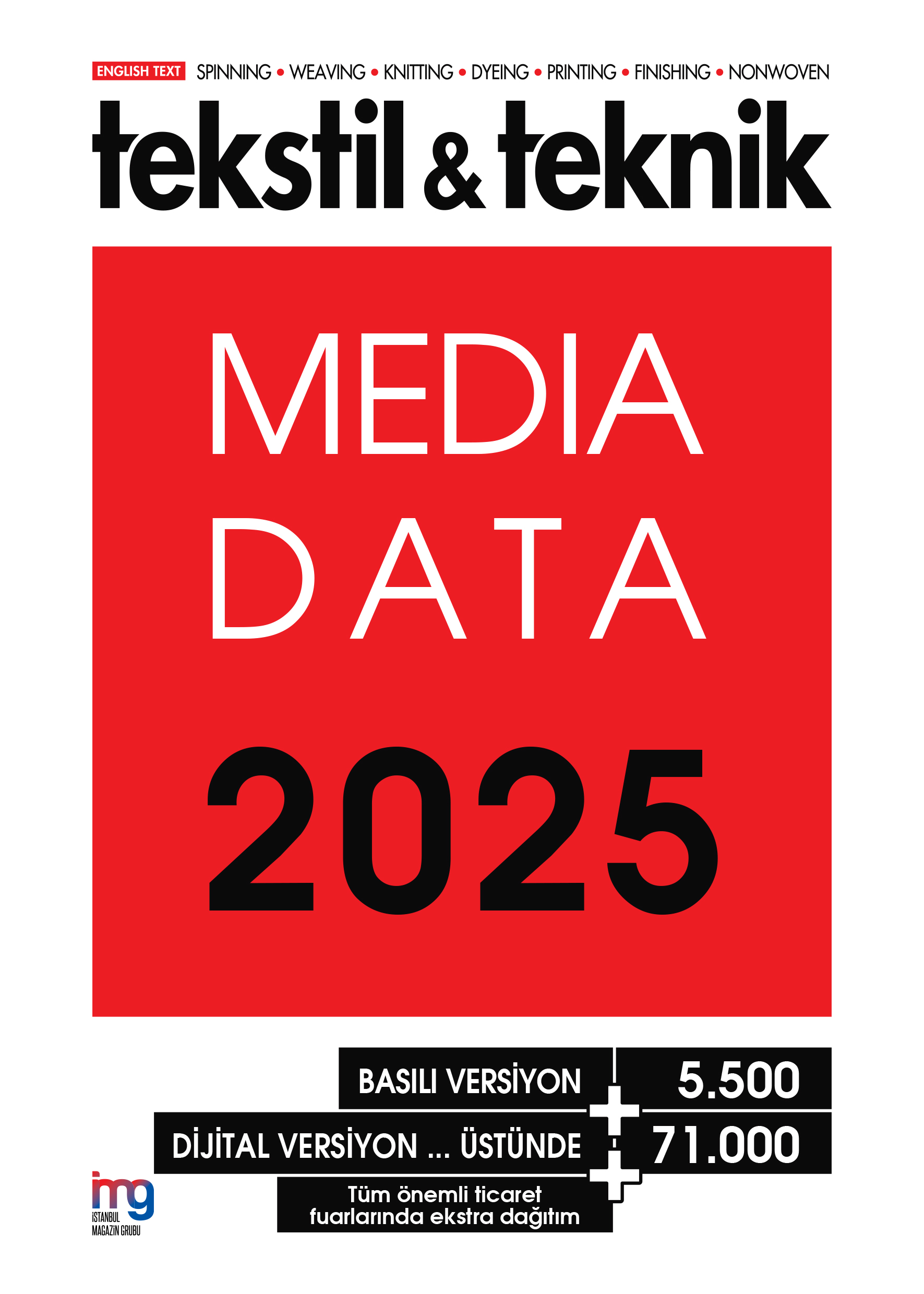Soaring costs, declining capacities, increasing import pressure, and unfair competition… As one of Türkiye’s key industries, textile and apparel are under intense pressure from ongoing economic fluctuations. Industry representatives have united in calling for urgent support measures: “In this challenging period, where our individual efforts fall short, support mechanisms are more crucial than ever.”
The fabric is fraying—only public support can keep it stitched
Following the pandemic, the textile and apparel industry has been grappling with deepening economic volatility, mounting costs, and unstable exchange rate policies. Leading industry figures warn that the situation has become unsustainable. Ahmet Öksüz (İTHİB) and Toygar Narbay (TGSD) outlined challenges from production to exports, employment to competitiveness. Their message is clear: without government support, recovery is extremely difficult.
Mounting costs and import pressure undermine competitiveness
Öksüz noted that textile production capacities dropped to 50–60%, and that rising costs made imports more attractive. He criticized misuse of the Inward Processing Regime (DİR), explaining that many goods are sold domestically instead of being exported, causing tax losses and unfair competition. He called for container-based, not sample-based, inspections.

green transformation, sustainable textile industry, eco-friendly production, yeşil dönüşüm, sürdürülebilir tekstil, çevre dostu üretim
Three consecutive years of losses in apparel: “Left alone, bankruptcies are inevitable”
Narbay stated that 2023, 2024, and the first months of 2025 all ended in losses. “Exchange rate suppression erodes our revenues while costs skyrocket,” he said. Turkish products are now 60% more expensive than Far East and 45% above North African alternatives. “This is unsustainable.”
Urgent action plan on the table
Industry leaders propose:
- 10% currency support for net exports
- Rediscount interest rates to be halved
- 2,500 TL employment support per worker
They warn of potential bankruptcy waves without rapid implementation.
Hope in the West, competition in the East
Öksüz noted Uzbekistan’s shift to finished cotton goods is increasing pressure on Turkish producers. He advocated for a Preferential Trade Agreement with the U.S. to boost exports by 20%.
The pulse of production weakens—hope hinges on collaboration
Facing pressures at home and abroad, the sector—once a national economic driver—now struggles for survival. This crisis affects production, employment, and tax revenues alike, and will shape Türkiye’s economic future.
***
Tekstil ve hazır giyimde alarm zilleri: “Bu krizden tek başımıza çıkamayız”
Yüksek maliyetler, düşen kapasiteler, artan ithalat baskısı ve haksız rekabet… Türkiye’nin lokomotif sektörlerinden tekstil ve hazır giyim, ekonomik çalkantılar karşısında alarm veriyor. Sektör temsilcileri acil destek çağrısında birleşti: “Kendi çabalarımızın yetersiz kaldığı bu süreçte, destek mekanizmaları her zamankinden daha önemli.”
Kumaş sökülüyor, dikişi devletle tutarız
Pandemi sonrası derinleşen ekonomik dalgalanmalar, artan maliyetler ve kur politikaları sektörün sürdürülemez bir noktaya geldiğini gösteriyor. İTHİB Başkanı Ahmet Öksüz ve TGSD Başkanı Toygar Narbay, üretimden ihracata, istihdamdan rekabet gücüne kadar yaşanan sıkıntıları dile getirdi. Ortak mesaj: Devlet desteği olmadan çıkış mümkün değil.
Yüksek maliyetler ve ithalat baskısı rekabeti zayıflatıyor
Öksüz, kapasitenin %50–60’a düştüğünü, maliyetlerin ithalatı cazip hale getirdiğini vurguladı. DİR kapsamında gelen ürünlerin iç piyasaya sürülmesiyle vergi kaybı ve haksız rekabet yaşandığını belirtti. Numune değil, konteyner bazlı denetim istedi.

Hazır giyimde üç yıl üst üste zarar: “Yalnız bırakılırsak iflaslar kaçınılmaz”
Narbay, 2023, 2024 ve 2025’in ilk dört ayının zarar hanesiyle kapandığını belirtti. “Kur baskısı gelirlerimizi eritiyor, maliyetler patladı” dedi. Türk ürünleri Uzak Doğu’ya göre %60, Kuzey Afrika’ya göre %45 daha pahalı hale geldi.
Acil önlemler listesi masada
Sektör temsilcilerinin önerileri:
- Net ihracata %10 kur desteği
- Reeskont faizinin yarıya düşürülmesi
- Çalışan başına 2.500 TL istihdam teşviki
Bu önlemler alınmazsa yeni konkordato ve iflas dalgaları bekleniyor.
Batı’da umut, Doğu’da rekabet
Öksüz, Özbekistan’ın mamul ihracatına yönelmesinin Türkiye için ciddi bir tehdit oluşturduğunu belirtti. ABD ile Tercihli Ticaret Anlaşması yapılması halinde %20 ihracat artışı sağlanabileceğini ifade etti.
Üretimin nabzı zayıflıyor, umut masada
Hem iç hem dış pazarda ciddi baskı altındaki sektör, artık ayakta kalma mücadelesi veriyor. Bu krizin etkileri yalnızca sektörü değil, tüm Türkiye ekonomisinin yönünü belirleyecek güçte.










